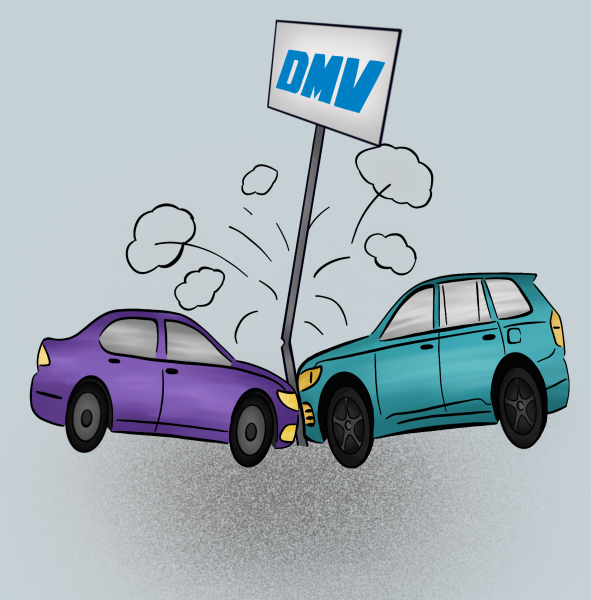College Board’s AP Exam Plan is Deeply Flawed
Over Winter Break, College Board (CB) released an update regarding its intentions for the infamous Advanced Placement (AP) exams to be reminiscent, if not the exact same, as the normal 3-hour format, unlike the modified 45-minute tests of 2020.
But things are still not business as usual for high schools across the United States, so why should this year’s AP exams be?
It’s ridiculous that CB does not believe the extraneous circumstances that have defined this school year are not extreme enough to warrant a transparent, modified exam that teachers and students can be confident in preparing for.
“If a school is closed or coronavirus-related risks prevent a student from testing at a school, the AP coordinator will be able to authorize a full-length digital contingency exam that can be taken at home,” CB says on its website.
Given that we live in the Bay Area, all bets are off regarding whether or not our future will be safe enough for students to return to school in the coming semester period, nevermind if Campolindo students will be admitted on campus to swarm the small gym to take AP exams in person. Furthermore, it is more likely than not that all students—whether in-person or online—would need to test at the same time given the AP’s strict test security policies, thus creating the possibility of exposure for an elongated period of time.
The concerns of equity regarding a student’s ability to attend school and learn the required material still remain; in the past few months, low-income families did not suddenly all get access to the best WiFi, individual computers, and monthly stimulus checks to put toward these materials to use for classes.
Many students use the credit earned on their APs to opt out of units in college, which can save money in our country’s widely expensive university system. Intending for these tests to take place in-person should a county’s guidelines permit it and leaving the rest of the students nationwide with an online format is incredibly insensitive to student needs, and ultimately, makes it more difficult than it should be for those in circumstances that do not lend themselves to online tests to pass their exams.
CB boasts of the so-called “support” they’ve so generously provided via their website to better instruct students with certified teaching videos for all subjects. What help will a 16-minute video about how to use a graphing calculator give to students who quite literally do not have internet access? Or those who struggle to learn remotely, period?
We have more questions and confusion about the AP exams this year than we did in the circus that was May 2020. Does a non-modified exam mean students who cannot risk for the sake of immunodeficient family members must forfeit their right to take the test they’d dedicated a year to prepare for? Will students need to be vaccinated to take an in-person exam, or will they be taking the exam in a room full of possibly-infected people? Overall, CB really needs to step up in regards to communicating with the students of the nation.
1 of CB’s concerns with having a modified exam like last year’s is that universities potentially will not accept the scores of an adjusted AP test, which I feel is an incredibly cheap excuse. Many colleges came out and said they will accept the exam scores of 2020, and universities have been very understanding for the most part in regards to accepting Credit/No Credit grades as well as becoming test-optional for other standardized tests.
Also, CB waited until March last year—a little less than 2 months away from the exam dates—to completely modify the formatting of tests to 45-minute, free-response questions. Now they have had the luxury of an entire year to prepare as well as communicate with colleges across the country about the validity of the scores to come, so I fail to see why CB has neglected to explore the option of modifying this year’s exams with the very schools that said they would accept the scores of 2020.
Clearly, with all the time CB has been given to better prepare for this year’s exams, they have squandered crucial planning time away by already committing to full 3-hour tests instead of preparing for the very real possibility that unmodified exams will create much more student suffering than AP exams already do; perhaps the high-ups on the board simply wish to repurpose the non-modified tests designated for 2020 in a COVID-free world while also making a pretty penny on worried students purchasing extra study materials.
Additionally, according to CB’s website, the 2021 tests will “cover the full course content so that students are accurately placed into higher-level courses where they can succeed when they get to college.” In contrast, the exams of 2020 covered a limited scope of the typically expansive information required on tests from years passed; for example, the AP U.S. History exam only covered Historical Periods 2-6 rather than the typical 1-9.
The reason for the scope of last year’s exams was because many schools hadn’t been able to finish teaching the entirety of the content with the rapid transition to online learning. In 2020, we had at least been learning in our schools for the months of August to February.
For many students this year, classrooms have been any spare room in the house for the entirety of the school year. Although teachers have had more time to budget time for review, the scheduling of classes in many schools, including Campolindo, has changed to accommodate online or hybrid learning.
With all the educational and logical barriers in place preventing thousands of students from having a fair chance in taking their AP test, there remains the insensitivity of CB to the exorbitant stress levels and trauma experienced by many who have lost loved ones or contracted COVID-19 themselves.
Of course, no one likes taking tests—especially 3-hour long, mega-climatic evaluations that reward college credit to high-scorers. But this is not the year for CB to convert back to non-modified exams that are as equally, if not more, complicated as the modified version that better accommodates the global pandemic that does not seem to be going anywhere.
Your donation will support the student journalists of Campolindo High School's The Claw. Your contribution will allow us to produce more issues and cover our annual website hosting costs.

Senior Nicole Kennedy has played volleyball for 8 years and is currently on Campolindo's varsity team. She also played club volleyball at Red Rock East...


